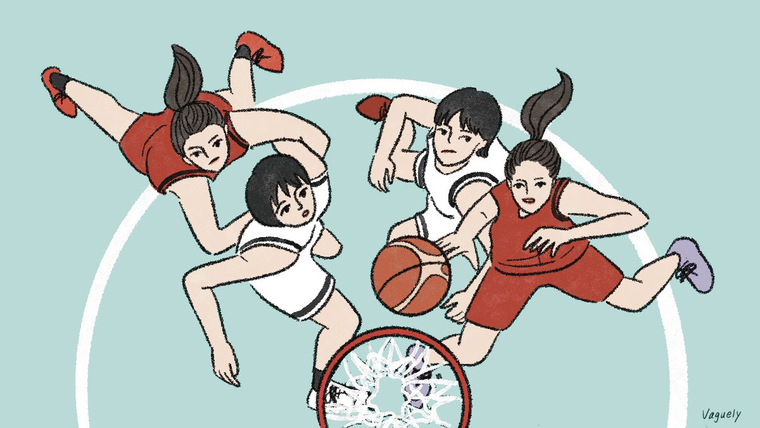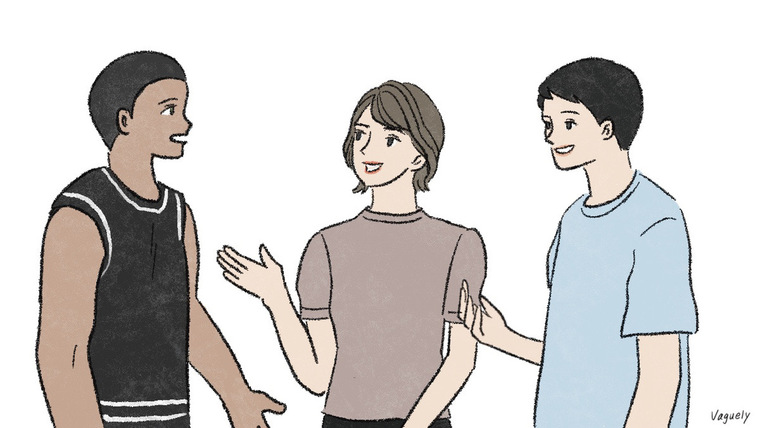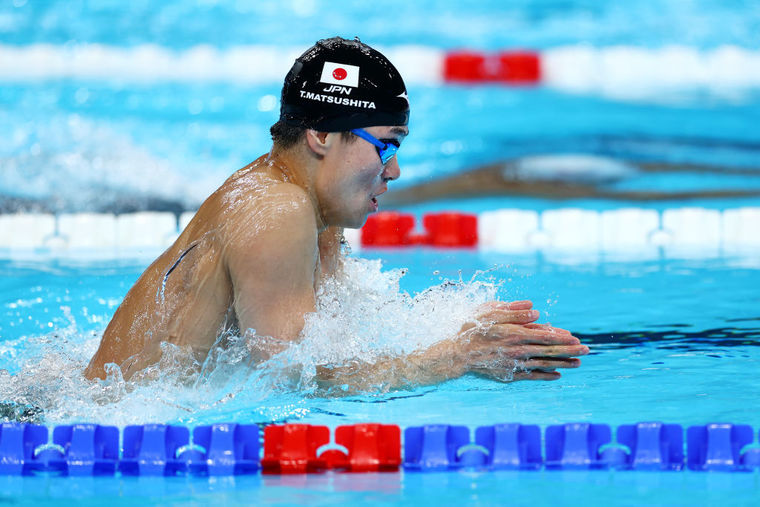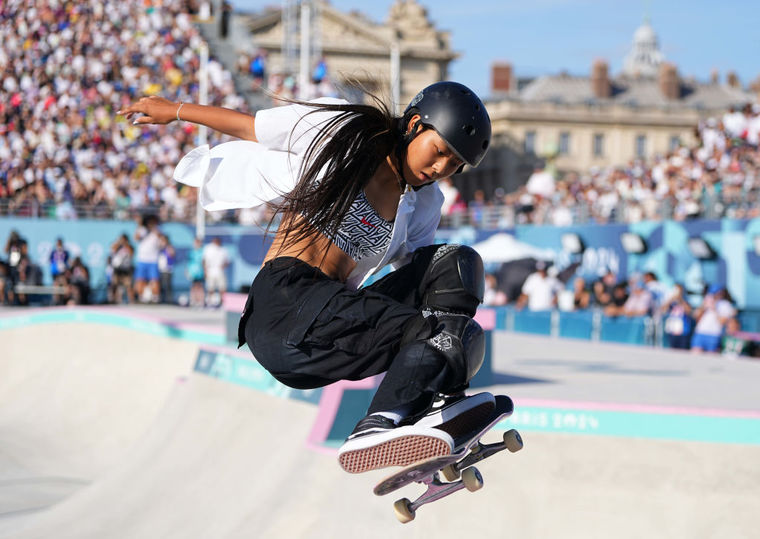
From basketball to the women's national team and to Eddie Jones: The message that Marie Sasaki, a sports interpreter who continues to take on new challenges, wants to convey now
Sasaki Marie, who has accumulated experience with the men's basketball team, will be taking on the women's national team for the first time in 2022, after the Tokyo Olympics. Although she was confused by the different culture and way of thinking from the men's team, she worked hard as a coordinator for overseas tours and international matches. She learned about the "ability to switch" from watching the players and what she learned from taking on a new challenge with Eddie Jones. We will share her current status as a sports interpreter and a message for the next generation. *Top image provided by Sasaki Marie
Experience with the women's national basketball team and the differences with the men's team

--You were appointed as the women's national basketball team in May 2022, but you joined the team after it won the silver medal at the Olympics.
To be honest, I had hardly watched women's basketball until I was called up. I have been involved with men's basketball for a long time, and have experienced the early days of the B.League and its milestone games, but I had no connection to women's basketball. To be honest, it was only after I was called up to the national team that I finally began to remember the players' names.
I was sometimes confused by the differences in culture and thinking between the women's team and the men's team. It was my first time to be involved with a women's team for a long period of time, so I was often surprised by the gap between my previous experiences and the reality.
--Specifically, what aspects of it made you feel confused?
My main job was to act as a team manager and liaise with the team. I didn't have much of a burden in terms of tactics or technique, but rather I played a major role as a go-between for the team and the association, and I often struggled with coordination and communication.
Especially during overseas tours, I had to act as the liaison for all teams, and preparing for international matches was very difficult. This is not something unique to the women's team, but is due to the complexity of international matches themselves, and I think the biggest burden was the sheer amount of work.
\Troubles that I couldn't talk to anyone about, but my friends still supported me
--If someone in a position like Sasaki-san has work-related worries or problems, how do they go for advice?
Basically, there is no one I can consult with. Due to the nature of my job, there is a risk that important team information may be leaked, so it is not an environment where I can easily ask for advice.
However, when I was with the women's national team, it was reassuring to have people in the same position, such as the men's national team manager and the manager of 3-on-3 basketball, who understood the circumstances of international matches and the association.
In particular, the manager of the men's national team has a wealth of experience in international matches, and he was extremely helpful in giving me specific advice on arrangements and procedures, as well as directing me to the places I could seek advice if I needed it.
The best moment is "the relationship continues"
--When working as a sports interpreter, what is the moment that makes you feel the most "best" or fulfilled?
Honestly, not really. This is a question I get asked a lot, but I rarely find my job as an interpreter easy or give me an immediate sense of accomplishment. To begin with, I think my English skills are inferior to other interpreters, and I struggle every day just to maintain them.
There is always a sense of tension during work, and I often have to worry about my choice of words. There are also times when I have to move forward without any time to worry, so there are rarely any moments when I feel like I'm "the best."
--Even so, are there any memorable episodes or scenes that moved you?
More than the work itself, I remember especially when I met with the players and coaches I had been in charge of for the first time in a long time. At the time, we were all struggling in tough situations, but seeing them working hard on their current paths makes me really happy.
Among them, the two years I spent with the Brazilian coach of Panasonic Panthers (now Osaka Bulleteon) are particularly memorable. We didn't always have a good relationship, but because we supported each other through difficult times, when we meet again we remember how hard we worked at the time and the moments when we think, "I'm glad I did it then," are the most fulfilling.
What working with Eddie Jones taught me

--Have there been any big topics recently?
Although I still have the title of sports interpreter, I don't actually do much interpreting work. I'm currently working as a personal assistant to Eddie Jones, the head coach of the Japanese men's rugby team.
I'm in charge of all of his support duties, so I do most of my work outside of interpreting. Thanks to all the effort I've put into studying English, I've been able to go beyond the role of interpreter and work on the field at rugby. I've realized that by using English as a weapon, I can be entrusted with positions I never imagined.
--About working with Eddie Jones, I often hear that he is a man of great character. What do you think of him after actually meeting him?
I have been working with Eddie since October. Although we mainly communicate remotely, I strongly feel that Eddie is someone who values communication very much. He closely checks the progress of work and necessary matters, and frequently holds catch-up meetings, and I am impressed by his attitude of working closely together. Although there are various ways to build a team depending on the sport and head coach, I am also inspired by Eddie's approach.
As a freelancer, how do you balance work and leisure?
In the sports industry, it's difficult to take a day off completely. Even if you're not scheduled to be tied down, you still have to do some work, such as clerical work, responding to emails, and preparing documents. However, because I love my work, I don't often think, "I want to take a complete break!" Maybe that's why I can continue this way of working.
However, when we think about the next generation of working styles, I don't think working without breaks like we do is the right answer. In order to solve the labor shortage, I think it is important to create a system that allows people to have private time.
Looking to the future of sports interpreting - Receiving systems and nurturing the next generation
--You must have experienced both the good and the bad in your work as a sports interpreter. Is there anything you would like the next generation or young people to aspire to or become interested in this job?
Yes. First of all, this job is by no means easy. However, recently I've been getting more and more consultations from young people and people who have had experience in other jobs saying, "I want to work in a job that uses sports and English." Rather than simply wanting to make such people dream, I have a strong desire to provide them with practical support.
--From an interpreter's perspective, what challenges do you see in the current sports industry?
There are many sports where there is a serious shortage of interpreters. This is especially true for teams with foreign players and staff, such as volleyball, basketball, rugby, and baseball. However, it is impossible for me to solve all of these problems by myself. That is why I am working to develop the next generation of talent and create and connect communities.
--Specifically, what kind of activities do you carry out?
I introduce the team to people who are interested and provide them with training opportunities. I also encourage the team to "establish a system to accept people with little experience."
Rather than simply increasing the number of interpreters, I feel that we need a system to improve English literacy throughout the sports world and understand the culture of foreign athletes.
In fact, I have seen situations where foreign players have trouble in their daily lives, or where smooth communication is not possible within the team due to a lack of understanding of the culture and English. To solve these issues, it is essential to change not only the interpreters but also the reception system itself.
English expands your career possibilities
- Is there anything you would like to say to people who are aiming to work in the sports industry?
I definitely want everyone to study English. English is a valuable tool not only for interpreters, but also for a variety of positions, such as managers, trainers, analysts, and coaches. Speaking English will increase your chances of seizing new opportunities, so please give it a try."
--What specific study methods do you recommend?
Mastering English takes time, so I want students to start taking small steps, such as learning one word a day. This will be an investment in their future selves. As a teacher at a vocational school, I feel the enthusiasm of students who want to join a basketball team, but in many cases their English skills are insufficient.
Even if you can't speak English, there are paths forward, but if you can learn it, the opportunities you can grab will definitely increase. I hope you'll start making an effort, even if it's just a little at a time, to expand your possibilities.
Marie Sasaki
After graduating from university, he worked for a general company before joining the Osaka Evessa of the Japanese professional basketball league as a team manager and interpreter in 2013. He then spent two seasons with the Kyoto Hannaryz and two seasons as an interpreter for the men's volleyball team Panasonic Panthers (now Osaka Bulleteon). In 2022, he will accompany the Japan Women's Basketball National Team to the World Cup as a manager. While expanding his range of sports to include soccer and skiing, he is currently working as a personal assistant to the head coach of the Japan Men's Rugby National Team.

Commentary on Ohtani's batting, who was outstanding this season, and MLB's home run king

Tomoyuki Matsushita's astonishing comeback! Swimming 400m individual medley - Playback Paris Olympics 2024
From basketball to volleyball: The story of Marie Sasaki, a sports interpreter who turns challenges into strength
Being yourself and striving for greater heights - the story of moe-K's freestyle challenge in Tokyo



